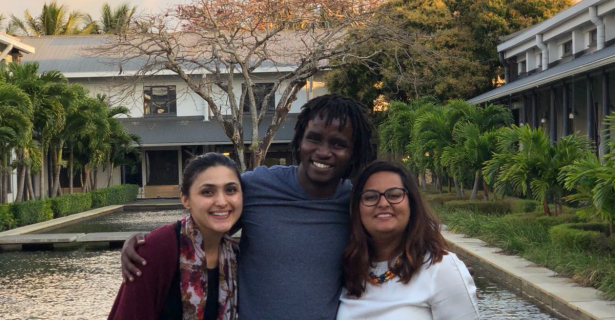The African Leadership University (ALU) offers a revolutionary learning model that revolves around providing tools for self-directed learning. Students are at the forefront of their own learning experience, with faculty playing a primarily supportive role.
My team has worked to provide organizational support for students and faculty to prosper in this model. To achieve this, I have interacted with students and staff alike; to learn about their professional and academic journeys. This has been particularly interesting since it shed some light on how these individuals performed their duties, interacted with each other, and learned from one another.
To make this understandable, I should state that the ALU student body is a gathering of bright minds from all over the continent, though with vastly different thought processes. They all, however, share the same hunger for personal and professional development. I have had numerous teachable moments interacting with them.
As part of its entrepreneurial training, ALU takes its students through a leadership core curriculum in their first year. This curriculum is designed by experienced professionals in reputable global fields. The aim of this training is to motivate students to take initiative toward becoming global problem solvers. To speak for this training’s success, the majority of the students have at some point taken initiative to solve the challenges that they have faced, both at school and at home.
A perfect example is Noah.
Noah is a third-year student at ALU from Uganda. Upon his arrival to Mauritius, he noticed that the public transportation system was not nearly as accommodating as in most other African countries. Students have to walk about a mile and a half on an unpaved road to get to the bus stop, where they then have to wait for up to two hours for a bus to take them into the city. After his leadership core training, he decided to start his own student-run, taxi business. As a student on financial aid, he could not afford to buy a car and so instead decided to rent one that he would drive when he was not in class. He quickly became the entire institution’s go-to for taxi rides. He now enjoys exclusive, sustainable business from ALU students, with profit margins that significantly surpass those of local cab drivers.
Another example is Reese, a third-year student, who also found a marketable product with high demand and which he had the particular skills to provide. Hailing from Ghana, Reese was a novice cook of traditional Ghanaian cuisine. He could not find restaurants that served his favorite home meals, or other traditional mainland cuisines. He then started practicing by making Ghanaian meals. After a while, he tried his hands in East and Southern African meals, each time inviting friends from different regions. Reese now runs his own informal catering business, where he makes meals out of his kitchen in bulk. He even acts as a consultant for the institution’s dining services for special meal days. Reese hopes to one day start his own successful African restaurant on the island that might in the future expand to the numerous, surrounding tropical islands.
There are many other students who have become local entrepreneurs. Students run informal financial planning services and hair braiding and locking businesses. In addition to solving campus problems, students have also taken the initiative to solve problems in their own countries. While speaking about her computer science course, a student presented a mobile application that continuously kept track of the plastic waste in Lagos, Nigeria. She designed this app by relying on ALU’s teaching and learning model, which places students’ abilities to learn on their own at the forefront. With significant support, the students are on track to do great things, “hard things”, as the ALU community likes to say.
As I near the end of my internship, this experience has challenged me to take initiative similarly to analyze challenges that I have faced, small or large, and find ways that I can solve them for my community. Things that I have always thought to be challenges at Tufts are now all of a sudden opportunities looking for solutions.

